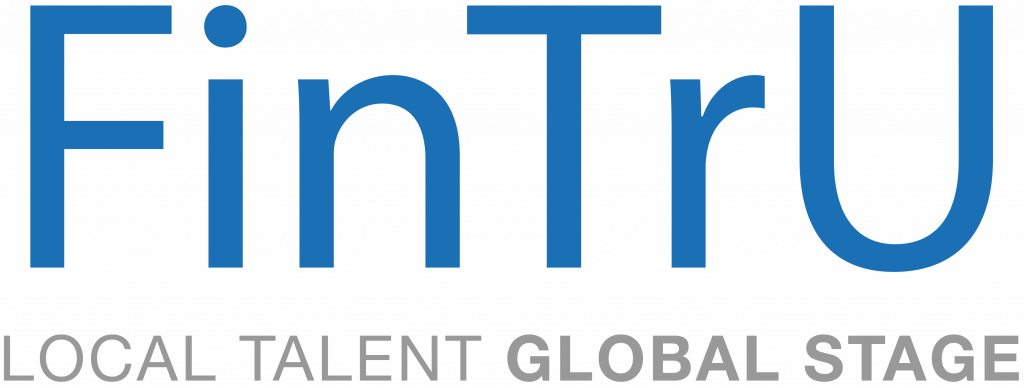Courtney Ward, a Quality Team Leader at Randox, shares her advice for graduates.

So what is commercial awareness?
So commercial awareness to me means having a real understanding of all the key companies operating in a specific industry or area or sector, you know, a knowledge of the different products that those different companies sell, what services they offer, and any kind of direct competitors, you know, companies offering the same product, you know, or any kind of slight differences between those products that they offer, and kind of my advice to graduates would be to really do your market research, yes you may be interested in various different you know sectors or kind of companies but make sure you’ve done a little bit of digging a little bit of research around that area and who definitely, maybe the geographical area you’re interested in, who are the key players, you know, in that area.
What ways might an employer assess commercial awareness on an application form or a cover letter?
So, they’ll look that you’ve actually done your research, you know, they’ll look that you’ve tailored your cover letter or application to that specific employer or sector, that’s one of the biggest things. Show them that you’ve done the time and the research in their area. You know – then they’ll take their time with your cover letter if you haven’t taken the time with them then they won’t take the time with you. So you know making sure that you demonstrate that you have an awareness of the business landscape, you know that you’re aware of that and how that role that you’re applying for fits into it you know they’ll want to see that you’ve actually read the job spec, and you’ve demonstrated that again, back in the cover letter you know that you’ve hit all those key essential criteria, and just indicate to them that you’re aware of where they fit against other companies and I really think tailoring is the biggest thing, tailoring it that you’ve read, you know, their details and if you answer all of the you know the, the criteria or desirables they’re looking for, or address some of them they now know that you’ve actually read it and as you’re happy, and understanding, you know what it is they’re actually looking for.
How can you demonstrate an understanding of the business and knowledge of his activities and products?
So, take every opportunity in your interview to demonstrate this, so as I said, doing that market research and that research in the company beforehand is really critical. But make sure you take the chance to express that in the interview don’t do all that research and then not saying anything about it unless you know, don’t wait for the question. Take your opportunity. So, common questions will be, you know, why did you apply for this role for this company? So that’s your key to go and demonstrate your research, you know, do they have a top-selling product or service? You know, mention that, you know, they’ve been demonstrate that they’re moving into a new area, or they have an upcoming product – you know, mention that you’ve seen that, you know, that you’re aware that they have that product or that service and offering. Have they won any awards for any of their products? We can always drop in or, you know, ‘award-winning product or service’ and things like that. A big one would be to read the latest news section so a lot of companies -particularly Randox will always put new brand new things or things that are out of the company on the latest news on our website so always check in that because that’ll be the big things they want to share so that’s your first check box – oh I actually went on the website, read what’s happened with the company.
When’s the most appropriate moment to mention your research in an interview?
So it could be why are you attracted to this role, what does this role mean to you? If your role directly relates to any of those products or latest news? If I were to do it for my role – what interests you in a quality role? You could say I’m interested in having high standard testing, making sure everything is meeting all the criteria. I saw you guys recently got your accreditation or you guys were awarded some other accreditation for a certain test – that could be a nice way to roll that in. So I think prepping before hand is really good. So if I ever have interviews what I would do would be to write down those key questions that I think they’re going to ask and prep a little bit of an answer – nearly like an exam – you know making sure.. well this kind of goes out the window in an interview when you’re nervous – but having done it beforehand you will have at least though through the answers.
So how important is it for a graduate to keep up with economic and political trends and what exactly does that mean?
That is a really difficult for graduate you know that’s something that you’re only going to learn when you get into an industry you know, there’s only so much research and that you can do with it experience in the job role of how things affect different businesses. I think being aware that they can so example would be, oil and gas, political trends you know will affect industries, different economic upturns and downturns you know will affect that. The COVID-19 pandemic is the biggest one there so whenever we began the testing back in March 2020 you could not get your hands on supplies, materials for testing, they became like gold dust when the entire world is trying to test for COVID-19 – lab consumables, pipettes, reagents, all become, you know the limiting factor, industries, not be able to get into manufacture them to get out so that was a key thing, that’s something that even me before this all happened I wouldn’t even think that that could have to that was an experience that I had, you know, going through my role. Again – rollout of vaccinations is another good one, you know that was a real political and economic debate so being up to date with current affairs, reading really good kind of online publications, you know that talk about these things. It’s a really good way, even if – you don’t need to know the ins and outs of it, a very broad level understanding will set you apart from other graduates you know by even actually having went that bit farther and trying to get that understanding.
How important is it for a candidate to research, and keep up to date with knowledge of an industry or knowing the major players so the competition that you’re up against the brand, how important is it to know all of those?
I think it is important because particularly for certain roles – it will be more important. So, if you’re doing sales, for example, you know that’s really, really important that people want to know, well actually I know that your company is the best seller of this reagent, you know, so I know that it’s up against these other you know players and difference in geographical, you know, where does that company sell, you know will be very important. Again, you’ll not be expected to know everything but you know, having an awareness of that is so important. Following different publications, there’s lots of resources online, you know that will do these kinds of reports and trends you know of different areas. but again, social media posts, that’s actually – LinkedIn is actually really great source. You can follow CEOs of companies you know different people, they’re always gonna be posting on mine when something is doing well, they’ll post those key facts and figures. So it’s hard to keep up, particularly as a student, if you’re doing your exams you know you have expected to spend all day long. Dipping in and out of it – create like your own kind of professional Twitter your own professional you know what your LinkedIn will be – but one tailored to do that so you can say oh well, actually half an hour today ago set and have a look at the industries and look down and then you can look down any key facts and figures that you see, bringing company feeds for example, around our Randox newsfeed we’ve publicised quite heavily our achievements with the COVID 19 pandemic and our different tests. So we will always put things on there quite regularly. So, if the company really using social media and actually makes it a lot easier, because I’ll be posting stories quite regularly.
So how can you demonstrate an awareness of how your role affects business performance and how your actions as a graduate affect the business’ bottom line?
I think, read around the role – a lot of roles, despite being vastly different industries will have may have different names, but to be very similar role, you know, certain types of companies will have the same role, no matter what it is the sector they’re in. See if you can find any testimonials – people, you’ll often find online people saying, a day in the life of such and such, you know a specific role. Can you find anything detailing, those different roles, every role is imperative to a business, so being able to see how it fits in the bigger picture is important, reach out to people on LinkedIn, you know, in that role. I have some questions about that, some people will be responsive to that you know they will be willing to offer you some advice on that. And also highlight any kind of experience or transferable skills you have, no matter where you’ve worked in what areas you will always have a transferable skill. There’s skills you know like communication, teamwork, whether you whether you’re the top dog or just entry level you will have been demonstrating the same skills across the board so even if you’re going from one sector to another and that’s a complete 180, you will have transferable skills. That was really when we had to hire a lot of testing staff, obviously the testing numbers that we do. We got a lot of applicants from people with non-science backgrounds. They were able to demonstrate to us that you know yes, I have to have a science degree but I have all these key transferable skills. They slotted right into the roles with us. So, you know, for me from my background I got pulled in from design and then was that in doing PCR testing so it really is. I have transferable skills and think that yes some of them were technical but there’s all these skills that were so important to my participation in the Randox kind of National Testing programme.
So what are your top tips to develop a commercial awareness?
As I said before, it’s a lot of time and effort, and typically when you’re still doing your studies, it can be a bit overwhelming but just that little bit and often I think keep yourself in the loop, particularly if you have a passion for a certain industry or a certain sector, or a certain company, you know, you may have followed up from you were young, just keeping up, up to date into that specific, you know, professional Twitter accounts that you follow relevant people you could dip in and out off wherever you want to, set up email alerts you know for relevant Twitter feeds, relevant terms , follow different reporters or some reporters who are very interested, you know, in certain sectors you know they’ll always publish really useful information for you. And so, I think, little and often is the key. It can be overwhelming but even taking that first step forward, will really set you apart from other graduates.
How important are time management skills, organisation skills, planning skills and prioritisation? How important are these and how can you develop them?
They are really important, no matter what area you work in the business, be it science and r&d, sales, anything. All of these, all these skills are transferable and they’re very important at all the different roles and you’ll develop them no matter what role you’re in. It’s very important to ask for feedback so from both your peers, and from your supervisors or anything like that, you know, can they offer you any constructive feedback you know of anything if any of those particular skills that you think you want to build on, because sometimes it’s hard to see from outside – someone might say you’re really good, you know, at time management, I’m really impressed. Maybe your organisation could be a bit better but these are things you can do. So just being vocal on that. One of the big things with graduates is the fear of the phone. No matter what business you’re in, you need to pick up that phone if someone is asking you we need a response we need that information right now, you might think I’m going to send them an email first and give them a couple of hours, you know you need confidence, picking up the phone and even, even after all my studies and my PhD and stuff, with all emails whenever I went into the kind of, you know, an industry job, you have to do that. So, you can always follow up with a good follow up with an email with a call, you know, discuss those and say, as we discussed in the phone – here’s all the points the from the call. But yeah, That’s a big thing, don’t be afraid to pick up the phone – you’ll forge relationships that way and then you can always call them again. It’s always good to get relationships with people in certain areas.
How can a student who doesn’t have professional experience demonstrate skills in an interview?
One of the big things with that would be flexibility. So being able to show – I’ve been involved in a number of different clubs and societies – I’ve juggled a part time job with my studies, you know, I’ve been able to do it that way, because for the most part you’ll never really have one project, you’ll probably have five, you know, and you’ll have to keep them all long side by side, you know, like did you study different courseworks as mini projects, you know that you’ve got yourself through to the end. Communication, really important, as I said, you know, I can pick up the phone and I can call people, I can communicate with people at various different levels, you know. Were you a student rep, where you communicated with lecturers, key people in the course organisation, your peers. Persuasion and negotiation is a hard one to demonstrate particularly as a student I used to give workshops on how to do this. Have you had to persuade different clubs for time, use of a room, use of a football pitch? That’s persuasion and negotiation – negotiating for different tutorial times. Everyone will have evidence of these skills – it’s taking the time to sit down and actually write them down, you know, being able to be specific with them you will have them it’s just one of the hardest things. Keep a record, you know, keep a record for yourself when you demonstrate certain things now when it comes to those job interviews, you can open your book and I did that last day and they did that.
How important is it to stay calm under pressure?
It’s really important. I can say from working in testing labs whenever the samples are flowing in at an astronomical number, you really have to keep your pressured head. It can be overwhelming, different work – someone might come in and there’s 10 different people vying for your expertise and your time at any one point. Take your time. Don’t be afraid to step back and take your time to think about how you’re going to respond to all of these different pressures. Some people will just go ahead and start rushing through it but I think it’s important to take, even if it’s 5-10 minutes to kind of sit down. I always make lists, you know, what are the things I need to do, and I still even if it’s tiny – I’ll write it down and tick it off because always feels really good, because otherwise you’re just sitting thinking I’ve ten things to do and you can’t focus on the job at hand so sometimes write it all down to prioritise it. Take that 10 minutes take that half an hour, even if you’re under pressure, that’s most important. It’s like essay answers – taking the time to brainstorm, you know different projects at work. And then you know you’re going to answer all the things you need to do and you’re going to do it effectively.
Interested in Randox? Randox are currently recruiting. You can find details of their current vacancies on the Gradfest2021 site.

Randox are proud sponsors of Gradfest2021



